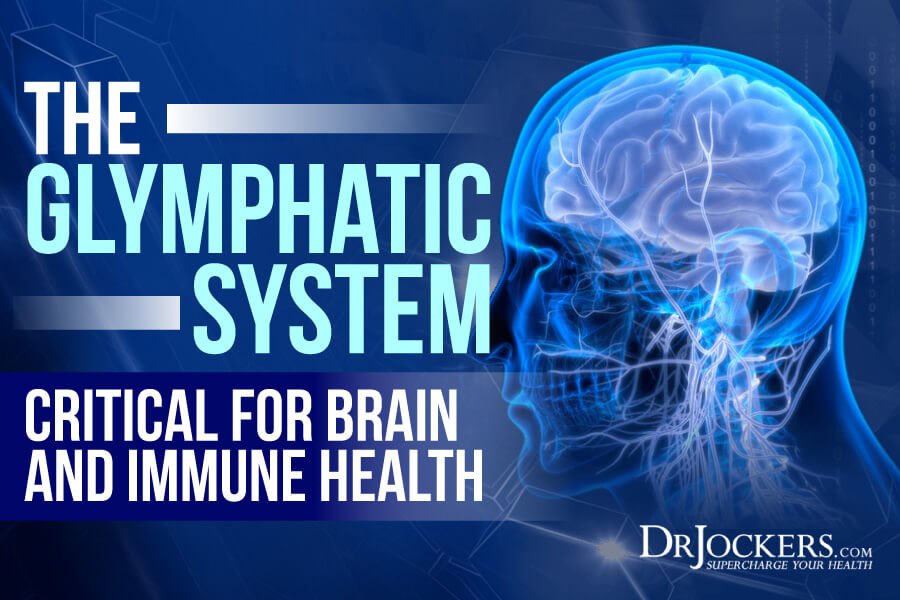 Glymphatic System: Critical for Brain and Immune Health
Glymphatic System: Critical for Brain and Immune Health
Your glymphatic system is a very important system that helps to remove metabolic waste and toxins built up within your central nervous system. The healthy flow of your glymphatic system is essential for your brain and immune health.
However, due to various dietary, lifestyle, environmental, and health factors, your glymphatic system can get congested compromising your brain and overall health. The good news is that you can improve your glymphatic system flow naturally with the help of certain simple strategies.
In this article, you will learn what the glymphatic system is. I will discuss the connection between the glymphatic system and the aging brain. You will understand the main causes of glymphatic system congestion. I will share my top tips for glymphatic system flow to support your brain and immune health.
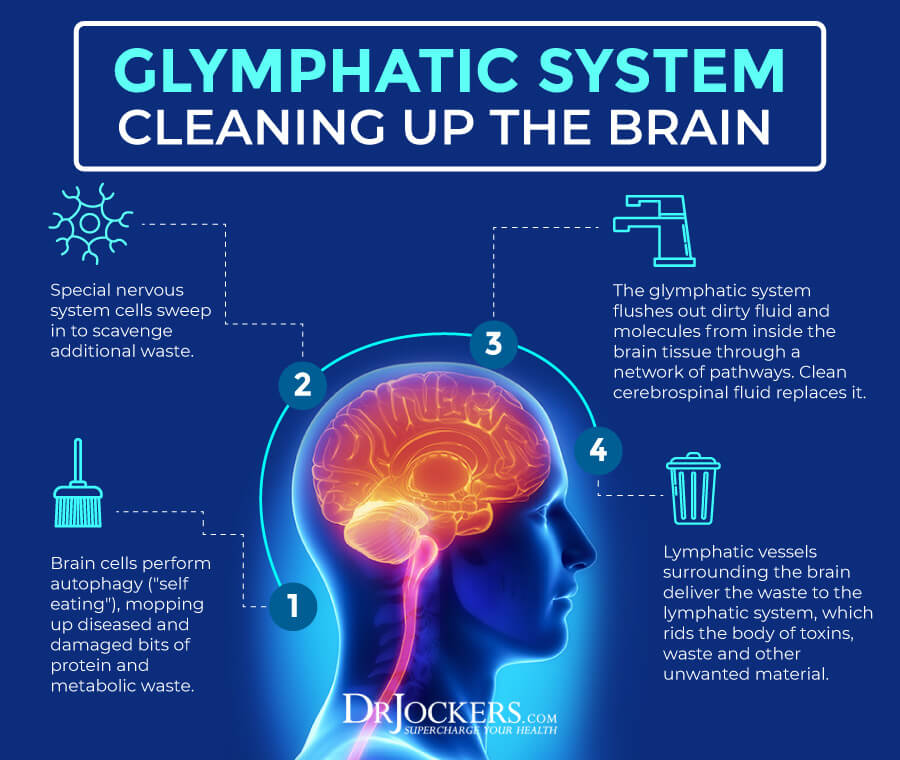
What Is the Glymphatic System
You’ve probably heard about the lymphatic system, an important network of tissues and organs that carry lymph, a fluid with white blood cells throughout your body. Your lymphatic system helps your body to get rid of toxins, metabolic waste, and other unwanted or harmful materials. However, your brain and spinal cord that make up your central nervous system (CNS) do not have true lymphatic vessels found in your lymphatic system.
Yet, metabolic waste and toxins can still build up within your CNS due to environmental, dietary, lifestyle, and health-related factors. Your CNS has to remove this cellular waste somehow. This is where your glymphatic system comes in to play an important role. Your glymphatic system is your body’s macroscopic waste disposal system (1, 2).
The term ‘glymphatic’ refers to your glial cells, which support, nourish, protect, and isolate your neurons and play an important role in your immune and glymphatic system. Astroglia is a type of glial cell that is particularly important within your glymphatic system. They have receptors, called aquaporin-4 channels that help the movement of cerebrospinal fluid (CSF).
CSF is a clear fluid that is essential for both immunological and mechanical protection around your CNS. Your glymphatic system runs parallel to your arteries and connects with your lymphatic system right by the thick membrane of connective tissue providing coverage to your CNS, called the dura.
Your glymphatic system allows the efficient removal of soluble proteins and metabolites from your CNS with the help of a system of perivascular tunnels. Your glymphatic system also helps to the brain-wide allocation of glucose, amino acids, lipids, neuromodulators, and growth factors. Since your glymphatic system mainly functions during your sleep and is mostly withdrawn during hours of wakefulness (1, 2).
During sleep, the canals that form the glymphatic system increase by about 60%, which allows the brain to expel waste more quickly and at a higher rate. According to research, sleeping on your side can improve the brain’s glymphatic drainage because it reduces flow resistance in the extracranial veins, which allows for optimal cerebral venous outflow.
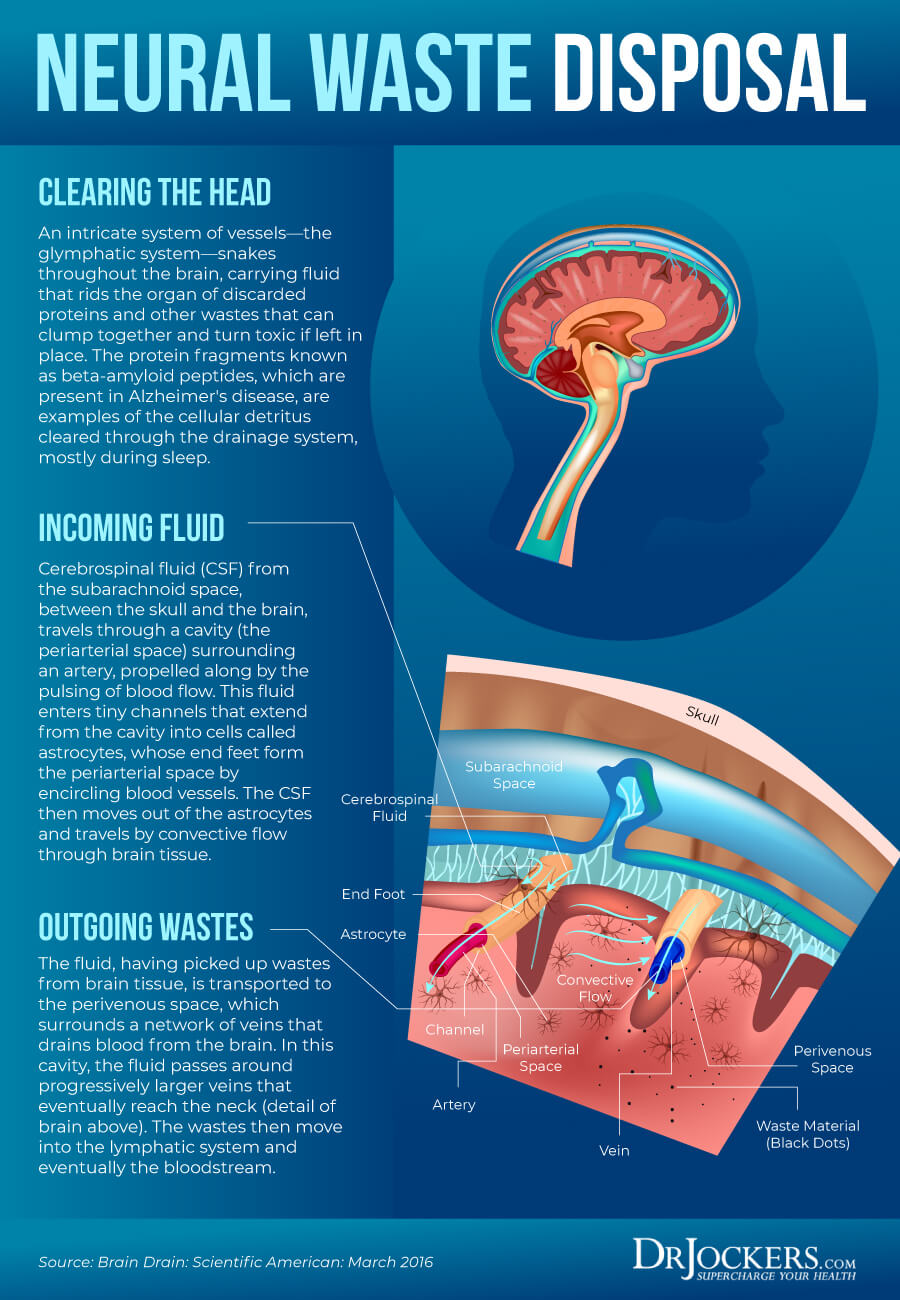
Glymphatic System and the Aging Brain
Removing waste from your CNS is critical for your brain and body’s homeostasis. This is particularly important as you are aging. According to a 2014 study published in the Annals of Neurology, the impairment of the glymphatic system due to aging may cause the clearance of interstitial Aβ, making the aging brain more vulnerable to neurodegenerative disease (3).
According to a 2020 study published in Nature Reviews Neurology, the clearance of the glymphatic system decreases with aging and increases the risk of neurodegeneration due to the accumulation of toxic proteins, such as amyloid-β (4).
It seems clear that the removal of metabolic wastes and toxins that may contribute to dementia and other neurodegenerative issues is critical. However, the function of the glymphatic system declines with age opening the door to the development of neurodegenerative disease later in life. Impairment of your glymphatic system may also contribute to strokes, cortical spreading depression, traumatic brain injury, and other brain health issues.
According to a 2020 study published in Science Translational Medicine, it may even lead to age-related ocular problems, glaucoma, and macular degeneration (5). A decline of your glymphatic system as you age may happen due to decreased flexibility, pulsing of your arteries decreased CFS, and changes in your glial cells. Protecting your glymphatic system’s healthy function and restoring drainage is critical to maintaining brain health throughout aging and reducing your risk of neurodegeneration.
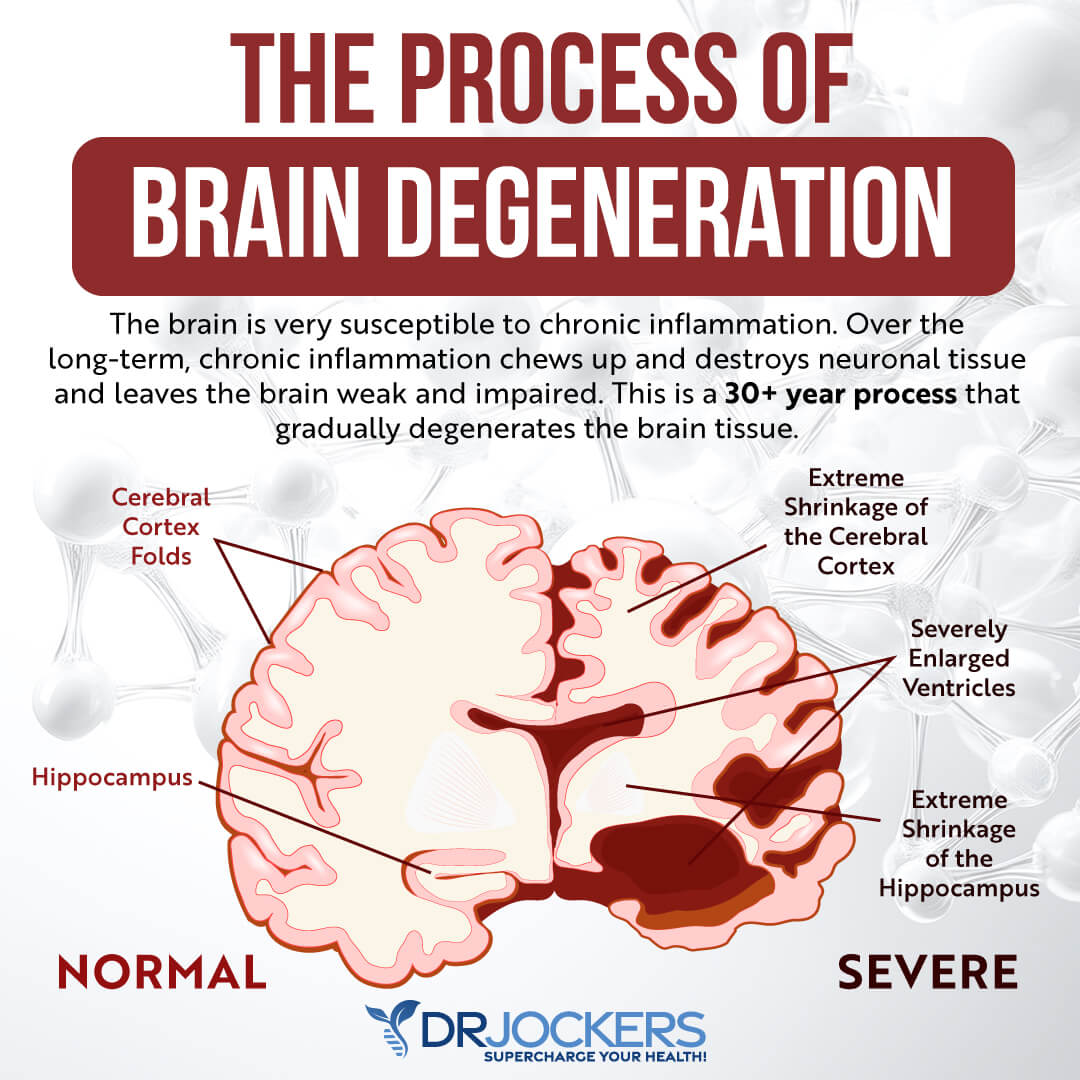
Causes of Glymphatic System Congestion
To protect your glymphatic system and reduce your risk of glymphatic decline, it is important that you first understand some major causes of glymphatic system congestion. These major causes are things that all of us encounter throughout our lives.
Here are the top causes of glymphatic system congestion. Some people adapt and minimize these causes better than others. Later in the article, we will discuss the best action steps to reduce these and improve our ability to adapt and support a healthy glymphatic system.
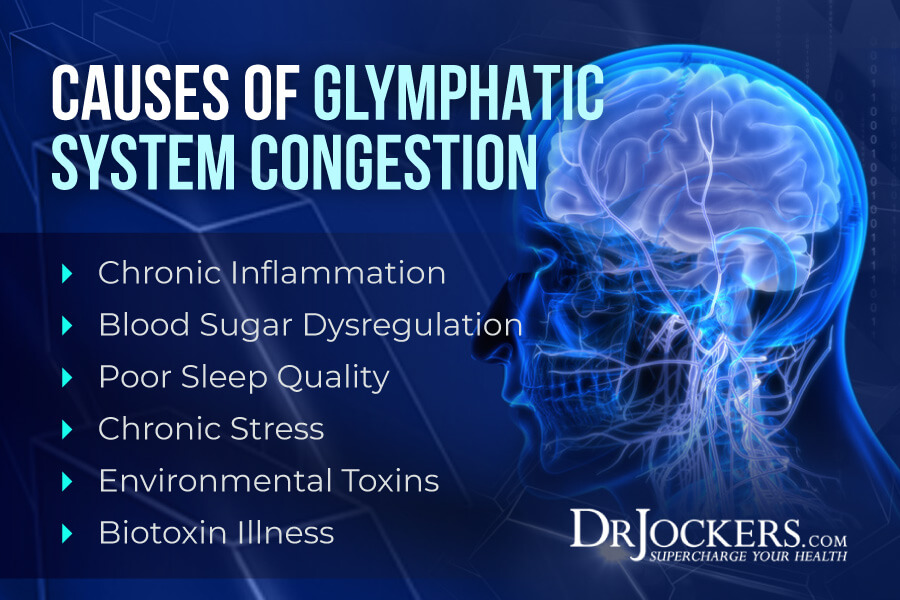
Chronic Inflammation
Chronic inflammation is the underlying cause of most chronic diseases and health dysfunction. Glymphatic system congestion is no exception. For healthy functioning and effective waste removal, your glymphatic system has to be moving.
Just like your lymphatic system, your glymphatic system plays an important role in an inflammatory response. Inflammation can lead to swelling and reduction of the glymphatic flow, while stagnation in the glymphatic system can increase inflammation feeding an unhealthy cycle of chronic inflammation and glymphatic system congestion (6).
According to a 2012 study published in the Journal of Neuroscientific Nursing, inflammation from immune response to injury, pathogens, irritants, or oxidative stress can increase the risk and contribute to declined cognitive function in older adults (7).
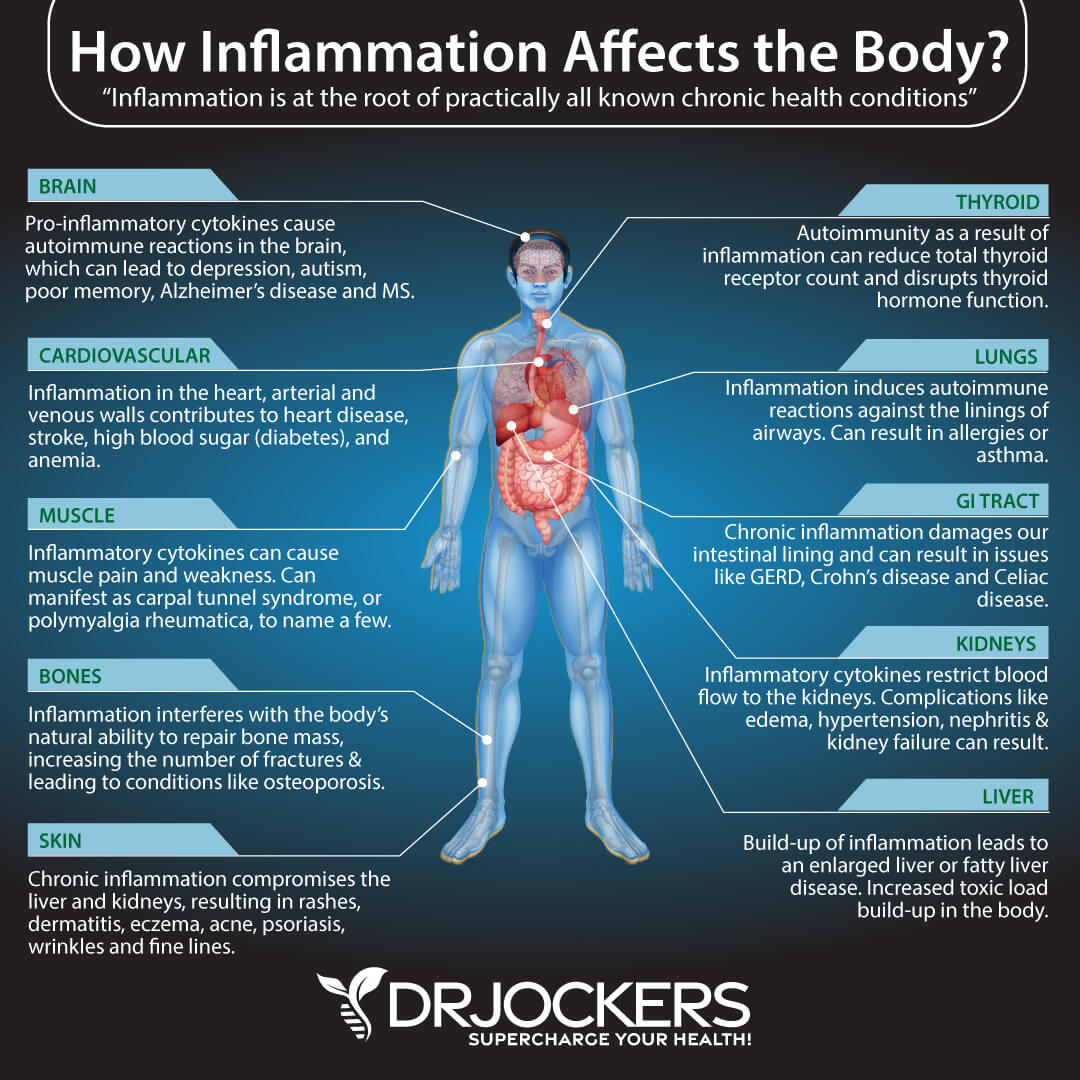
Blood Sugar Dysregulation
Blood sugar dysregulation is one of the major causes of glymphatic system dysfunction. If you are eating a diet high in refined sugar and processed carbs, but low in green, vegetables, healthy fats, and clean protein, your risk of blood sugar imbalances and dysregulations are high.
Grabbing a quick high carb snack may provide a quick burst of energy, but it will result in a blood sugar drop, brain fog, and fatigue. Blood sugar dysregulation can lead to fatigue, memory issues, brain fog, lightheadedness, mood fluctuations, and cravings.
Blood sugar dysregulation can be detrimental to your brain and mental health in general, but it can also be damaging to your glymphatic system. According to a 2019 study published in Stroke and Vascular Neurology, blood sugar dysregulation associated with diabetes mellitus may contribute to glymphatic system dysfunction increasing the risk of impaired cognitive function, such as dementia (8).
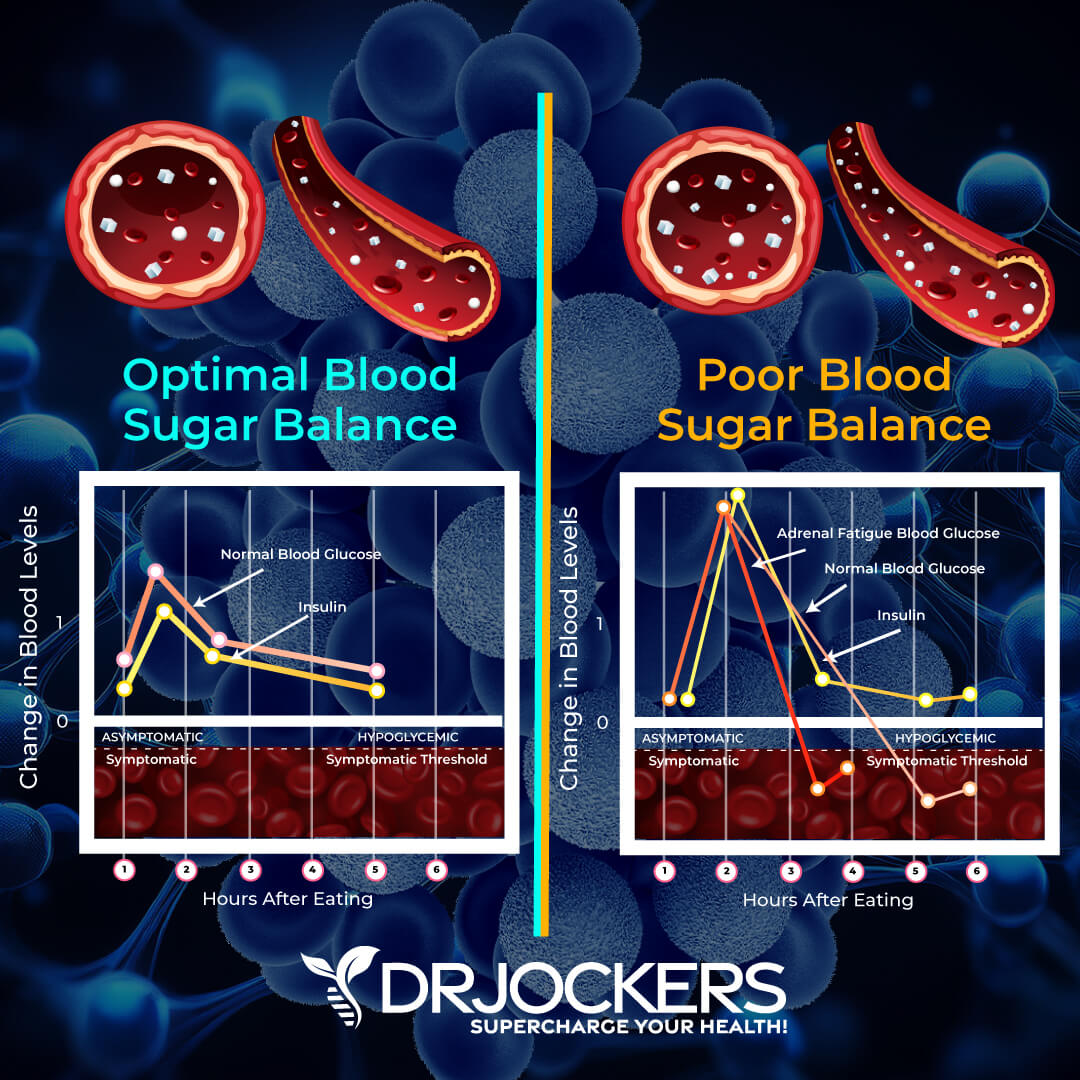
Poor Sleep Quality
Getting quality sleep regularly is incredibly important for your brain and overall health. Poor sleep quality can increase the risk of chronic stress, high cortisol, fatigue, and chronic inflammation that can contribute to symptoms of glymphatic system congestion.
As you know, most of the work of your glymphatic system takes place during your sleep (1, 2). Not surprisingly, poor sleep can interrupt this process contributing to glymphatic system dysfunction.
According to a 2019 study published in Science, your sleep-wake cycle regulates brain interstitial fluid and CSF and problems can increase the risk of pathology, such as Alzheimer’s (9). According to a 2017 study published in Frontiers of Neurology, chronic short sleep, and poor sleep quality can have lasting neural consequences and increase the risk of neurodegenerative disease (10)
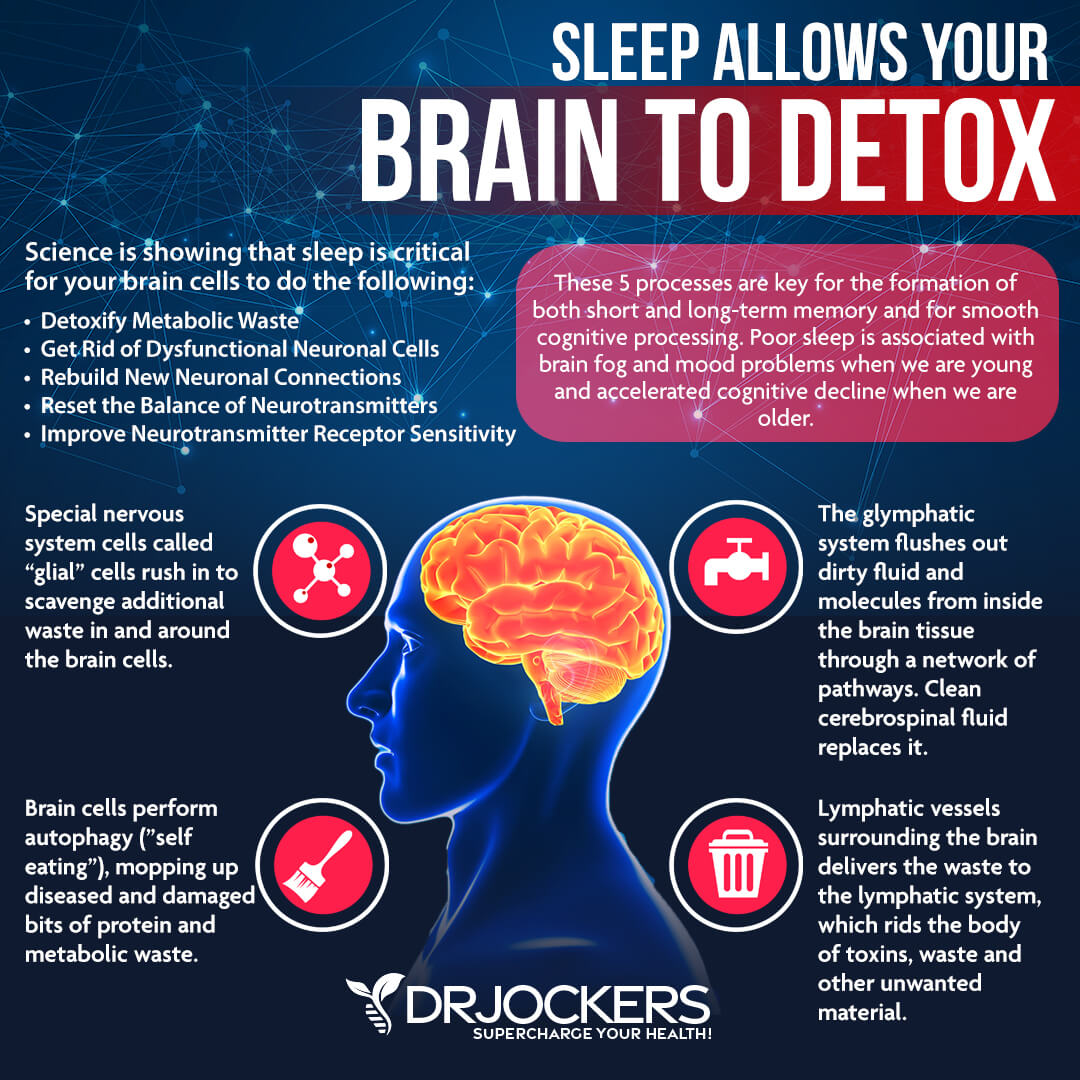
Chronic Stress
Chronic stress can have a serious impact on your brain health. When you are under stress, your body increases cortisol and adrenaline in your brain, increases your heart rate, heightens your senses, and increases your breathing. This is a healthy response designed for acute stress however, if you are under chronic stress, it can wear your brain down and may lead to impaired memory and brain health, may disrupt synapse regulation, and may kill your brain cells (11, 12).
Along with other important functions of your brain and CNS, chronic stress can also impair your glymphatic system. A 2019 study published in Psychopharmacology indicated that chronic stress may impair the AQP4-mediated glymphatic transport through glucocorticoid signaling which may increase the risk of neurodegeneration (13).
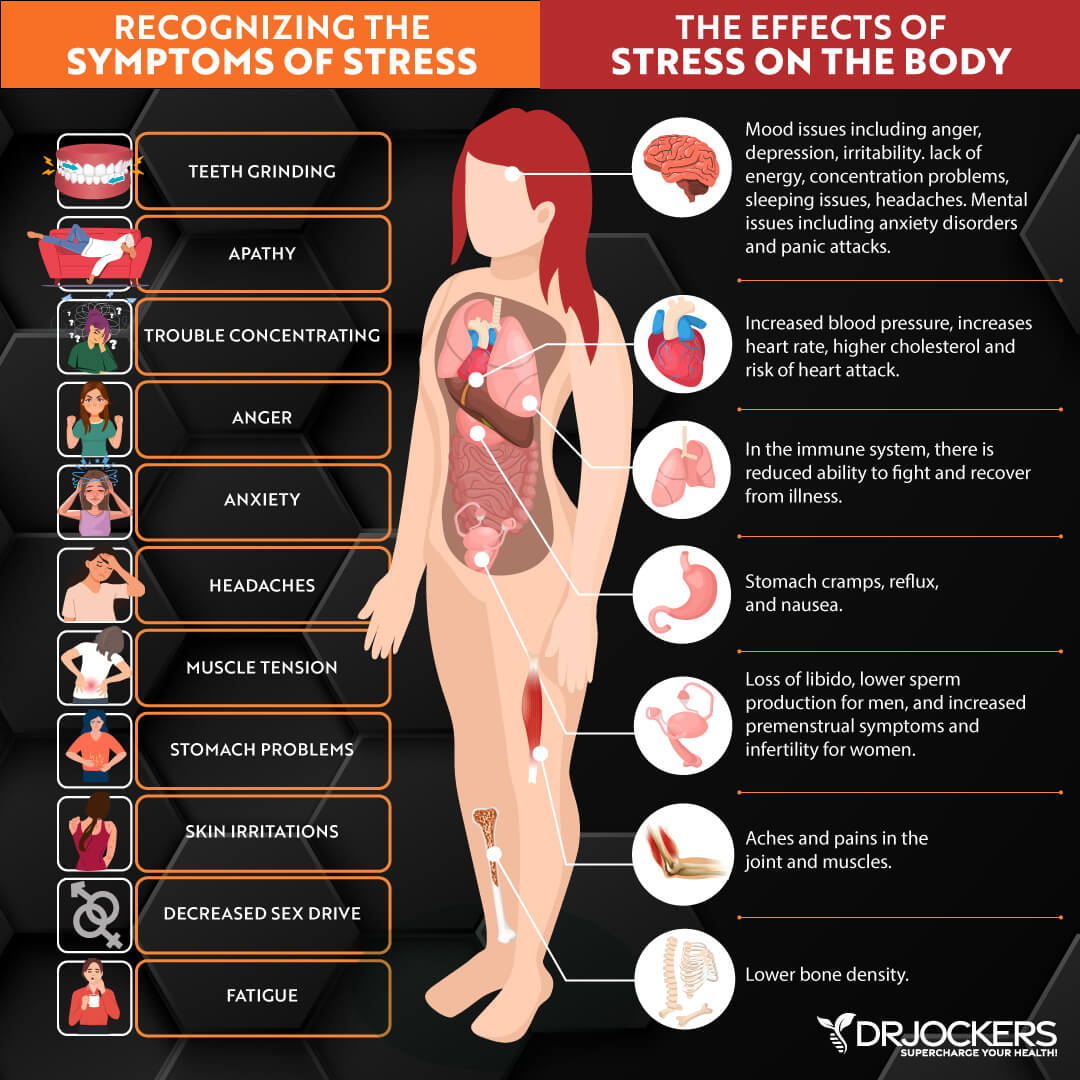
Environmental Toxins
Environmental toxins are unfortunately all around us in our polluted air, municipal tap water, non-organic and processed foods, conventional beauty, body, and household products, plastic products, moldy indoor spaces, and so on. These environmental toxins may have a serious impact on our brain and overall health.
Neurotoxins, such as ethanol (in alcohol), glutamate, nitric oxide, botulinum toxin (in Botox), tetrodotoxin, and tetanus toxin, are particularly damaging to your neurological functioning. As a 2015 study published in Current Alzheimer Research and a 2014 study published in the Journal of Environmental Health indicate, environmental toxicity can increase the risk of Alzheimer’s disease and various poor cognitive outcomes in adults and children (14, 15).
Environmental toxicity may lead to memory problems, brain fog, dementia, neurodegenerative diseases, mood swings, irritability, fatigue, anxiety, depression, and mental health issues. As a 2015 study published in Neurochemical Research and a 2019 study published in Gerontology explains, the job of your glymphatic system is to remove toxins and waste (1, 2).
Environmental toxicity contributes to this toxicity and creates more toxins and waste to be removed. If your glymphatic system is unable to keep up with the increasing amount of toxicity, it can lead to congestion and consequent health issues.

Biotoxin Illness
Biotoxins are hazardous organic substances that can lead to significant damage to the human body causing something called biotic illness. Biotoxins include mold, yeast, viral infections, bacterial endotoxins, and Lyme disease. These biotoxins and biotoxin illness may contribute to glymphatic system congestion.
For example, according to a 2020 study published in Frontiers in Cellular and Infection Microbiology, HIV infections may disrupt the glymphatic system increasing the risk of nervous system dysfunction and neurodegeneration (16). Biotoxin illness can also lead to gut dysbiosis which increases the risk of chronic inflammation.
Since your gut and brain are closely connected, gut microbiome imbalance and chronic inflammation can increase your risk of glymphatic system congestion, neurodegenerative disease, issues related to memory, learning, and cognition, mood imbalances, and mental health issues (17, 18, 19). To learn more about biotoxin illness, I recommend reading this article.
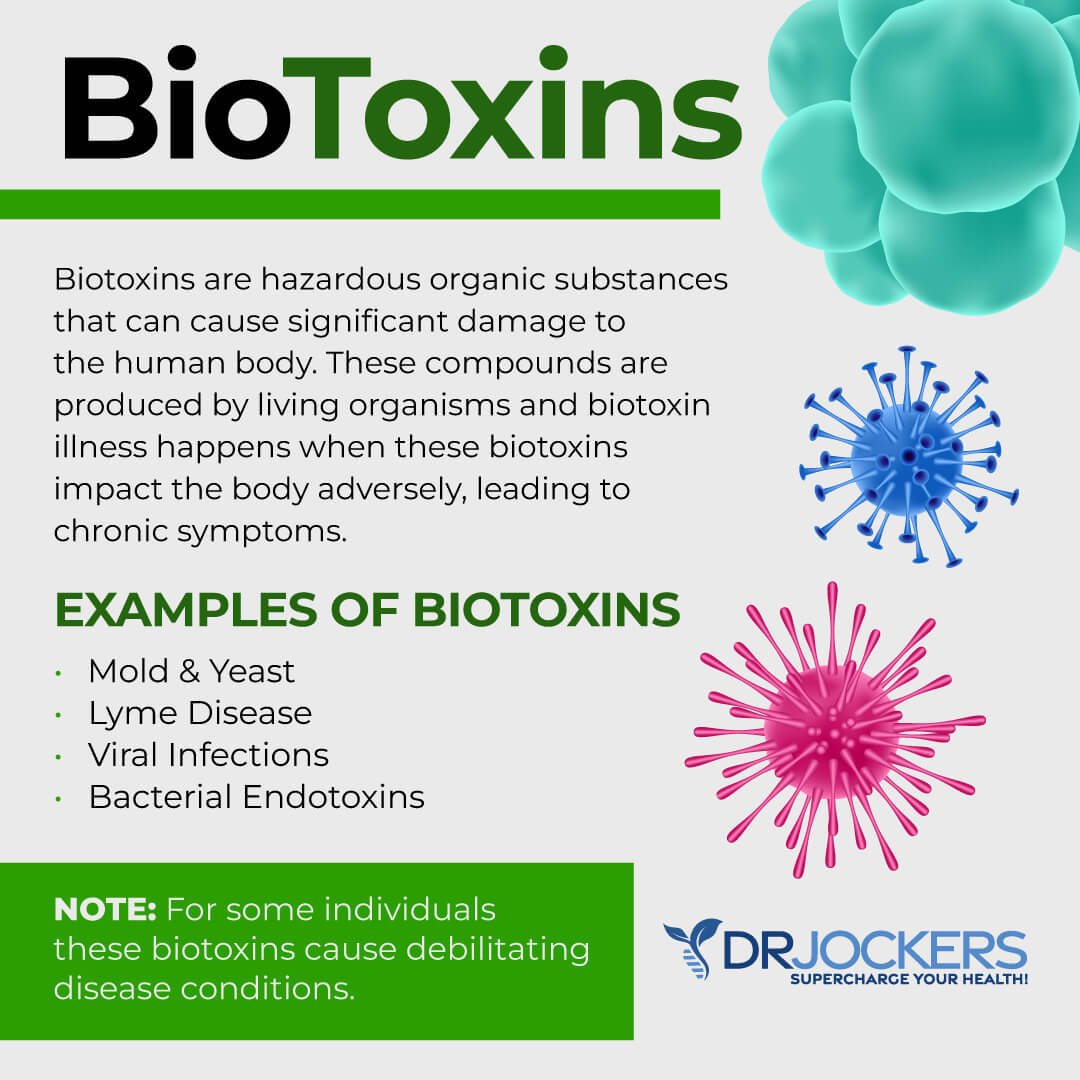
Best Action Steps to Improve Glymphatic System Flow
If you want to improve your glymphatic system flow to enhance your brain and overall health, there are some simple dietary and lifestyle strategies you can try. Since we are all exposed to the factors causing problems in glymphatic function it is important to be proactive about improving your glymphatic flow.
Here are the best action steps I recommend to improve your glymphatic system flow. Start applying these today to improve your brain health.

Prioritize Good Sleep
Your glymphatic system works during your sleep and poor sleep can lead to glymphatic system congestion (1, 2, 9, 10). To support your glymphatic system flow, you must prioritize good sleep.
To improve your sleep, avoid sugar and caffeine throughout the day, especially in the evening. Don’t eat late at night. Avoid stress, and turn off electronics several hours before bedtime. Wind down using relaxing activities, such as reading, crossword puzzles, healing baths, journaling, meditation, and prayer. Try black-out curtains or a sleep mask.
Make sure that you practice good sleeping posture. According to a 2015 study published in the Journal of Neuroscience, sleeping on your side improves glymphatic drainage (20). If you are not a side sleeper, this may take some practice, and having a supporting bed and pillows can help. Putting a pillow between your knees and hugging another one can help you in becoming a side sleeper.

Anti-Inflammatory Nutrition Plan
Inflammation is one of the root causes of glymphatic system congestion (6, 7). To support your glymphatic system flow, following an anti-inflammatory nutrition plan rich in nutrient-dense foods is the first best thing you can do to prevent brain degeneration and improve your brain health.
Remove all inflammatory foods, including refined sugar, gluten, refined oils, deep-fried and processed foods, conventional dairy, grain-fed meat and eggs, soda and sugary drinks, and foods that you are sensitive to. Instead, I recommend eating an anti-inflammatory diet and loading up on greens, vegetables, low glycemic index fruits, herbs, spices, healthy fats, grass-fed meat, and wild-caught fish.
Additionally, I recommend adding some anti-inflammatory omega-3s in the form of wild-caught fish and daily supplementation. According to a 2014 study published in Cellular Longevity, omega-3 fatty acids may improve depression, and according to a 2018 scientific review published in Nutritional Neuroscience, they may be beneficial for Alzheimer’s disease and neurodegeneration (21, 22). To learn more about an anti-inflammatory diet, read this article as well.

Intermittent Fasting
Inflammation and blood sugar dysregulation are two of the top causes of lymphatic system congestion (6, 7, 8). Studies have shown that intermittent fasting helps to improve inflammation and insulin sensitivity while benefiting cellular repair, immune regulation, and autophagy and lowering the risk of chronic diseases, including neurodegenerative conditions. Fasting helps the body produce ketones which turn off inflammation in the brain and improve glymphatic system function (23, 24, 25, 26, 27).
Intermittent fasting is a form of fasting cycle between not eating (fasting) and eating (feasting) over some time. If you are new to intermittent fasting, start out with the Simple Fast of 12 hours of fasting including your overnight sleep.
Gradually increase your fasting window until you find your sweet spot. Most people feel the most benefits at 16 hours of fasting. To learn more about the benefits of intermittent fasting and best intermittent fasting practices, I recommend this article.
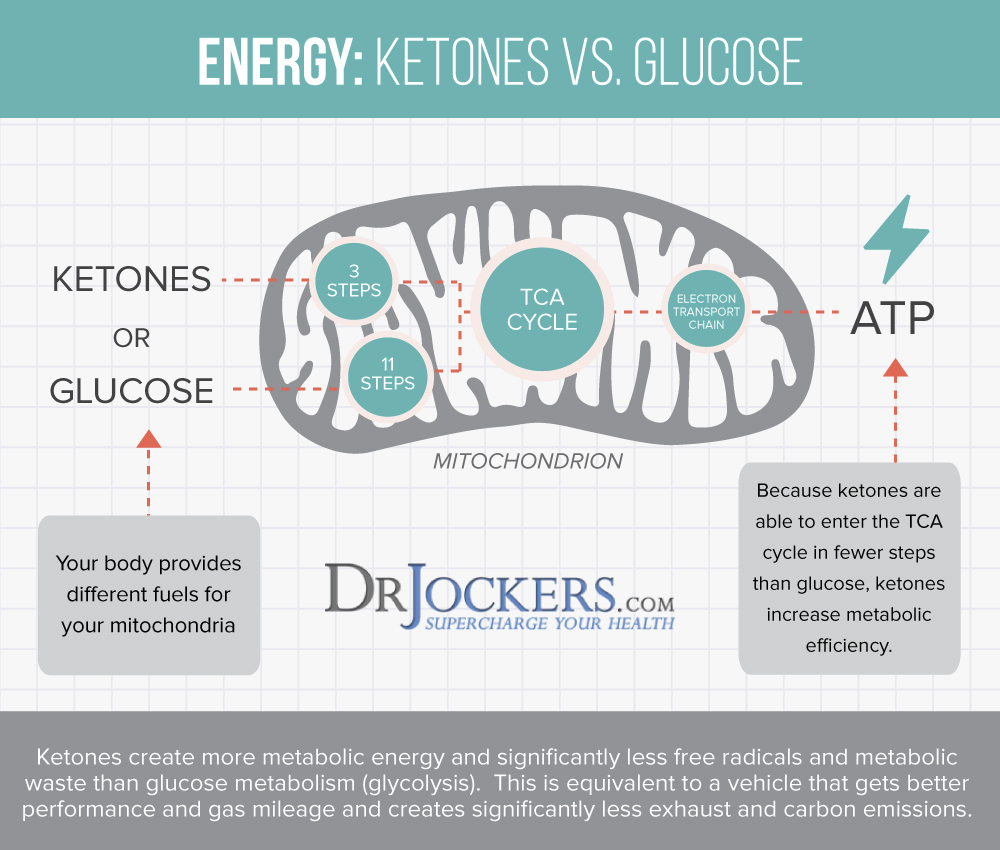
Regular Movement & Exercise
Since chronic inflammation is one of the root causes of glymphatic system congestion and exercise can reduce inflammation, moving your body is critical for glymphatic flow (6, 7). According to a 2011 study published in Aging and Disease, exercise can benefit both inflammation and signs of aging (28).
I recommend that you exercise at least 20 to 30 minutes minimally 5 times a week combining cardiovascular exercise, strength and resistance training, and low-impact exercise. Commit to staying active throughout the day by taking a walk during lunch, stretching regularly, dancing to your favorite song, playing with your kids or pets, taking the stairs, gardening, doing projects around the house, and finding other creative and fun ways to sneak in movement into your day.
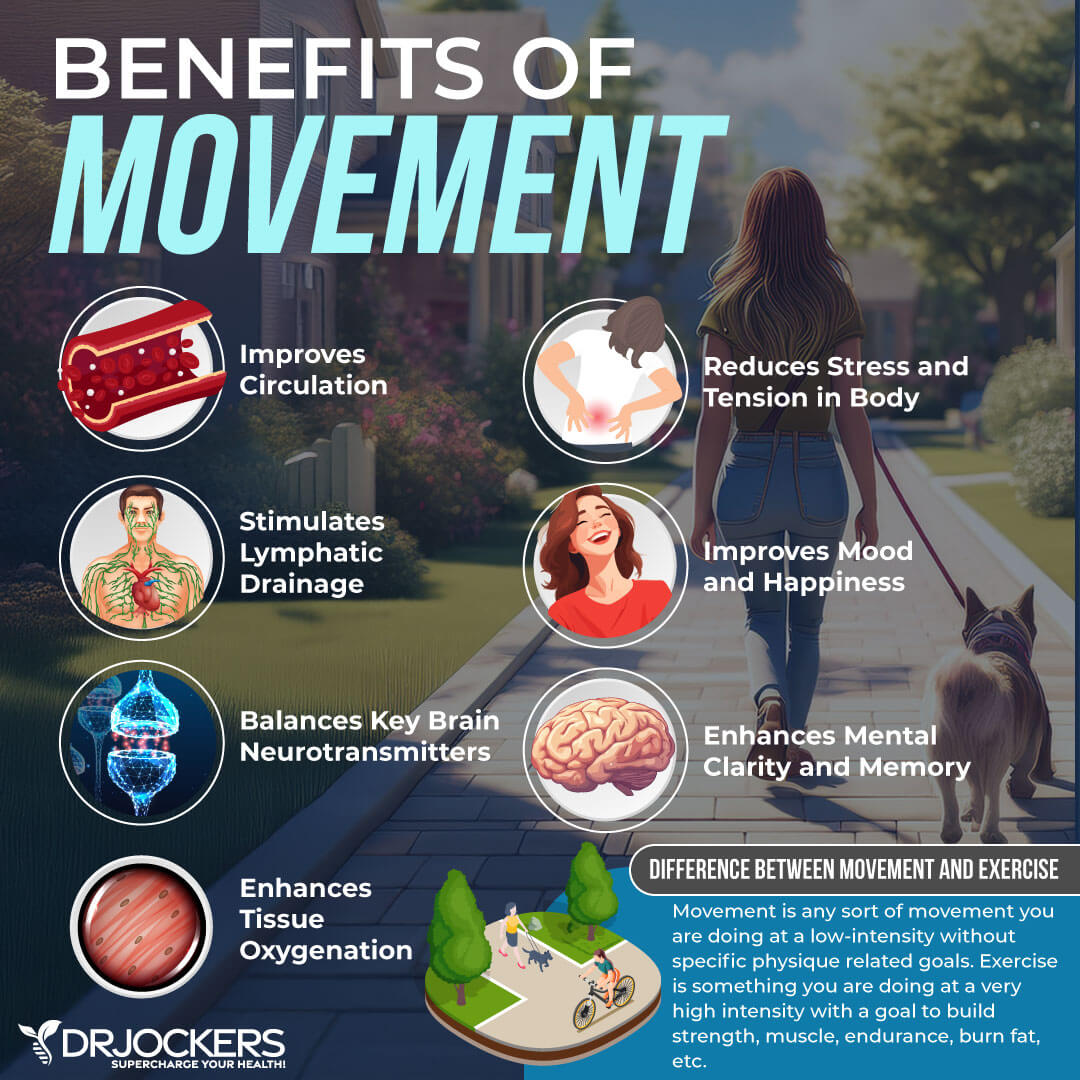
Reduce Stress, Practice Gratitude & Meditation
Chronic stress is a major contributing factor when it comes to glymphatic system congestion. (11, 12, 13). Reduce stressful events and activities in your life. Learn to respond to stress better. Surround yourself with uplifting and supportive people.
Engage in activities that bring you joy. Practice gratitude by keeping a gratitude journal and being thankful for the small things throughout the day. Practice meditation to center and bring yourself back to the present moment. Try breathwork, journaling, prayer, grounding, time in nature, and yoga. Take a relaxing bath and sip on some calming herbal tea.

Chiropractic Care & Massage Therapy
Chiropractic care and massage therapy can both help to relieve tension and pain. They can reduce inflammation and stress, two major underlying causes of glymphatic system congestion (6, 7, 11, 12, 13).
According to a 2014 study published in the Journal of Visualized Experiments, osteopathic manipulation can support the immune system (29). Chiropractic care and massage therapy can help to stimulate detoxification and encourage glymphatic flow. They are complementary treatments and you can receive both regularly for glymphatic support.
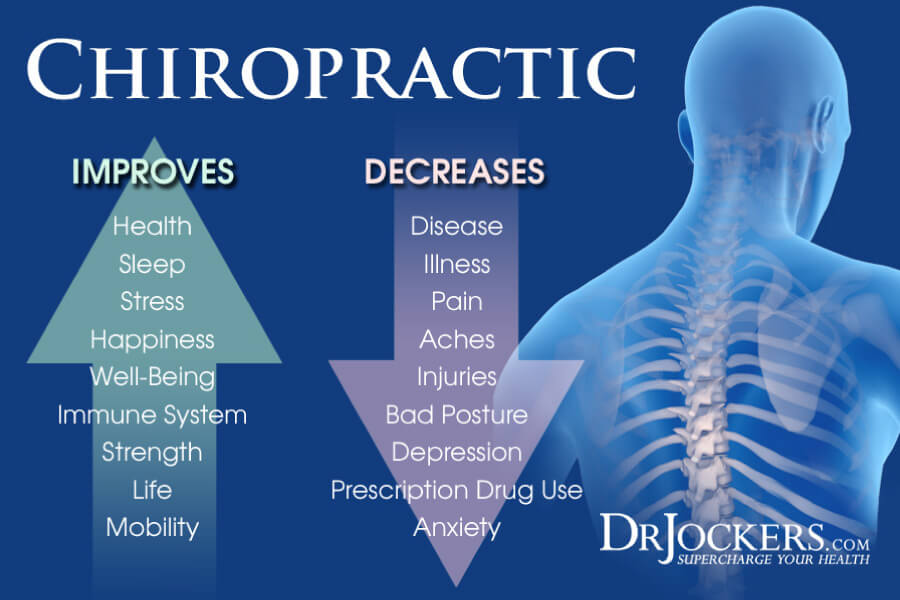
Use Magnesium
Magnesium is a critical mineral that helps relaxation, stress relief, and brain health, yet most people are deficient in it. According to a 2018 study published in Nutrients, magnesium can play an important role in the prevention of neurological disorders (30). Almonds, spinach, avocadoes, bananas, kale, pumpkin seeds, sunflower seeds, and cashews are great sources of magnesium, however, they are usually not enough to optimize your magnesium levels.
To improve your magnesium levels to support glymphatic system flow, I recommend Brain Calm Magnesium. This supplement helps muscle function, healthy nerve conduction, neurological function, energy production, mood, and mental health. Dissolve one scoop in 6 oz of cool, pure water. Take it once a day at night.
Use Bioactive Carbons
Bioactive Carbon is a form of carbon that helps to create and sustain life in a cell. They are critical for supporting detoxification and your overall health.
Bioactive carbons include two essential plant-based acid extracts: fulvic and humic acid, two extracts made up of carbon, hydrogen, and oxygen, the exact same elements that also makeup nearly all of your body. It is easy to understand that bioactive carbon may help your body to fight pathogens and toxins, support your immune system, and improve your overall health.
Since biotoxin illness is one of the potential underlying causes of glymphatic congestion, using bioactive carbons may help (16, 17, 18, 19). According to a 2011 study published in the Journal of Alzheimer’s Disease, the bioactive carbon fulvic acid may inhibit the growth of tau fibrils associated with cognitive decline (31). You can read more about the health benefits of bioactive carbons in this article here.

Use Lymphatic System Herbs
Remember, the glymphatic system works similarly and is connected to your lymphatic system. Your glymphatic system helps to clean up your brain while your lymphatic system helps detoxify across your body. Since they play similar roles and work similarly, lymphatic system herbs may support your glymphatic system (31, 32).
I recommend LymphActiv to my patients, friends, and family who want to clear lymph congestion and improve glymphatic flow because it utilizes all the benefits of Pomegranate, Rhubarb, Sheep Sorrel, Burdock Root, Slippery Elm Bark, Astragalus Root, and Artichoke Leaf.
LymphActiv is a unique bioactive carbon-based product that focuses on drainage and immune support throughout your lymphatic system. It can improve your immune system, flush toxins from the body, and improve lymphatic flow. You can take it with or without food. Simply take one capsule twice a day and you are set to go.
Consider Red Light Therapy
Red light therapy is a powerful therapeutic technique and an alternative healing method. It uses red low-level wavelengths of light for a variety of therapeutic purposes, including wound healing, scars, and other skin issues, inflammation, pain, hair growth, and sleep quality.
According to a 2013 study published in Seminars in Cutaneous Medicine and Surgery, red light therapy pain has pain-relieving, inflammatory-reducing, and restoration benefits (33). According to a 2017 study published in AIMS Biophysiology, red light therapy offers anti-inflammatory benefits, which is important considering that inflammation is one of the root causes of problems with glymphatic system flow (34, 6, 7).
Unlike ultraviolet (UV) rays from the sun, red light therapy is safe and doesn’t burn your skin. You won’t get a tan or get a sunburn, instead, you receive all the benefits of the red light deep inside on a cellular level when standing or sitting several inches from a red light therapy device.
I highly recommend and personally use Mito Red Light Therapy Device. It is a third-party tested device with the highest power on the market. Most red light therapy devices use only 2-watt or 3-watt LEDs, whereas Mito Red Light Therapy uses 5-watt LEDs for the best results. Use the coupon code DRJOCKERS at checkout to save 5% on the MitoRed product line.
You will experience higher irradiance for better results in less time. I love that it comes in different sizes for your convenience and that it’s affordable yet effective. To learn more about red light therapy, I recommend reading this article.

Final Thoughts
Your glymphatic system is a very important system that helps to remove metabolic waste and toxins built up within your central nervous system. The healthy flow of your glymphatic system is essential for your brain and immune health.
Follow my tips for your glymphatic system flow to support your brain, immune, and overall health. If you want further help with your health, we offer long-distance functional health coaching programs. For further support with your health goals, just reach out and our fantastic coaches are here to support your journey.
Inflammation Crushing Ebundle
The Inflammation Crushing Ebundle is designed to help you improve your brain, liver, immune system and discover the healing strategies, foods and recipes to burn fat, reduce inflammation and thrive in life!
As a doctor of natural medicine, I have spent the past 20 years studying the best healing strategies and worked with hundreds of coaching clients, helping them overcome chronic health conditions and optimize their overall health.
In our Inflammation Crushing Ebundle, I have put together my very best strategies to reduce inflammation and optimize your healing potential. Take a look at what you will get inside these valuable guides below!







What do you recommend when any sort of g/lymphatic support (even in the most minute amounts) causes an exacerbation of symptoms?
I would focus on really good sleep hygiene to get great sleep. I would also work to boost mitochondrial function.